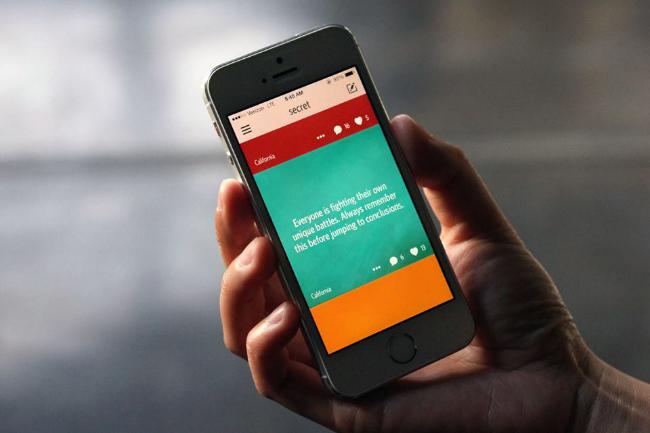
In a recent Facebook post, Byttow said, “Secret V2 is coming. It’s too important not to exist.” In an interview with TechCrunch, he explained the the downsides of current social media products — which President-elect Donald Trump has used as a tool to become elected — must be addressed, “and this is the only way that I know how.”
In addition, Facebook has been accused of helping to spread fake news through its newsfeed algorithms and story selections on its trending section. These are factors Byttow believes have affected the election in a negative way.
“People don’t have a good space to be their most authentic selves, especially to people they know,” Byttow said. “There is too much fear, and there is too little self-awareness. We need more self-awareness, starting with Silicon Valley. We are in a bubble. F**k the bubble. The truth wants to be set free. Only then can we begin to understand and only them can we heal and work together.”
For the unfamiliar, the first version of Secret, released in the beginning of 2014, let users post information — gossip, or snippets of text — anonymously. But even after $35 million in funding, concerns about privacy and cyberbullying shadowed the company, and key members like co-founder Chrys Bader-Wechseler jumped ship. Through the struggles, the comapny was also working to compete with similarly successful apps YikYak and Whisper.
When explaining why he was shutting down the app in a 2015 post on Medium, Byttow wrote, “I believe in honest, open communication and creative expression, and anonymity is a great device to achieve it. But it’s also the ultimate double-edged sword, which must be wielded with great respect and care.”
It’s Byttow’s belief in honest, open communication that is driving the effort to bring Secret V2 to the masses, as he feels a new version can work against some of the downsides and risks of the double-edged sword.
While Byttow is very early in the planning stages and had no timeline for release to offer TechCrunch in his interview, he said he wants to build the app the right way this time, starting by talking to a lot of people for guidance.
He also seemed to have learned a lesson in dealing with VC investments — rather than working to impress investors with positive returns, he would work this time on his own dime, and that money made by the app would go toward charities or causes like the ACLU or Planned Parenthood.
“If it’s to exist, it must be self-sustainable, and it must be free on any conflicts of interest,” Byttow said.
Editors' Recommendations
- Facebook, WhatsApp, and Instagram are back after several hours offline
- Facebook, Instagram, and WhatsApp are finally back online and working properly
